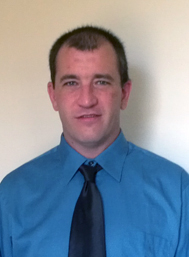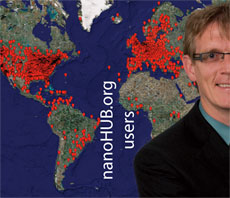Keynotes
Christian Lehinger (HealthQuest Alliance)

Christian Lehinger, MCSE, has been working in the field of health information management for over 15 years. Christian began his career in healthcare working with Inland NW Health Services. Here he was exposed to the hospital care technology infrastructure by discovering the disconnects that exist in health information dissemination between hospitals and private care. In 1999 Christian founded an organization thats purpose was to help medical clinics integrate technology into their practice to increase efficiency and profitability and to improve patient care. His experience both in the hospital and private care settings helped him to see how the lack of information interoperability has had dilatory effect on the health care system and this breakdown in communication is what is holding back the healthcare industry today, as well as many other industries that rely on information dissemination. In 2005 Christian formed what is now known as HealthQuest Alliance, an organization comprised of an information technology division supporting over 75 clients nationwide, a medical care services division that works with primary care medical clinics in three states, and a software development team with two products in commercial use today. Using the patent DDCNet Patent 7,810,145 that Christian invented in 2003, HealthQuest Alliance is working to bridge the gap in information interoperability by demonstrating how information management across all areas of healthcare is possible and will dramatically change the future of healthcare. Christian is Certified in Infrastructure by Microsoft.
Gerhard Klimeck (Purdue University, nanoHUB)

Gerhard Klimeck (http://nanohub.org/klimeck) is the Director of the Network for Computational Nanotechnology at Purdue University and a Professor of Electrical and Computer Engineering. He guides the technical developments and strategies of nanoHUB.org which served over 167,000 users worldwide with on-line simulation, tutorials, and seminars in the year 2010. He was the Technical Group Supervisor of the High Performance Computing Group and a Principal Scientist at the NASA Jet Propulsion Laboratory. Previously he was a member of technical staff at the Central Research Lab of Texas Instruments where he served as manager and principal architect of the Nanoelectronic Modeling (NEMO 1-D) program. At JPL and Purdue Gerhard developed the Nanoelectronic Modeling tool (NEMO 3-D) for multimillion atom simulations. The latest tools OMEN and NEMO5 developed in his research group scale almost perfectly to over 221,000 cores. Prof. Klimeck’s research interest is in the modeling of nanoelectronic devices, parallel cluster computing, and genetic algorithms. Dr. Klimeck received his Ph.D. in 1994 on Quantum Transport from Purdue University and his German electrical engineering degree in 1990 from Ruhr-University Bochum. Dr. Klimeck’s work is documented in over 160 peer-reviewed journals and 150 proceedings publications and over 160 invited and 330 contributed conference presentations. He is a fellow of the Institute of Physics, a senior member of IEEE and member of APS, HKN and TBP. His research group can be found at https://engineering.purdue.edu/gekcogrp/.
Deborah Gracio (Pacific Northwest National Laboratory)
Deborah Gracio joined Pacific Northwest National Laboratory in 1990 and is currently the Director for the Computational and Statistical Analytics Division. Since joining the laboratory, Gracio has led the research, development, and management of multiple cross-disciplinary, multi-laboratory projects focused in the basic sciences and national security sectors. Her work has included research and development of integrated computational environments for biodefense, computational biology, computational chemistry, and atmospheric modeling. Gracio was the director of the Data-Intensive Computing Initiative and research started in this program continue to address the acquisition challenges of high-throughput streaming data, workflow, provenance, and the development of an integrated architecture to support a distributed analysis environment.
Since joining the Laboratory, Gracio has been involved in a variety of projects that have aided in developing a broad technical background in computer systems integration, software engineering, scientific computing, large-scale data management, and data acquisition.


